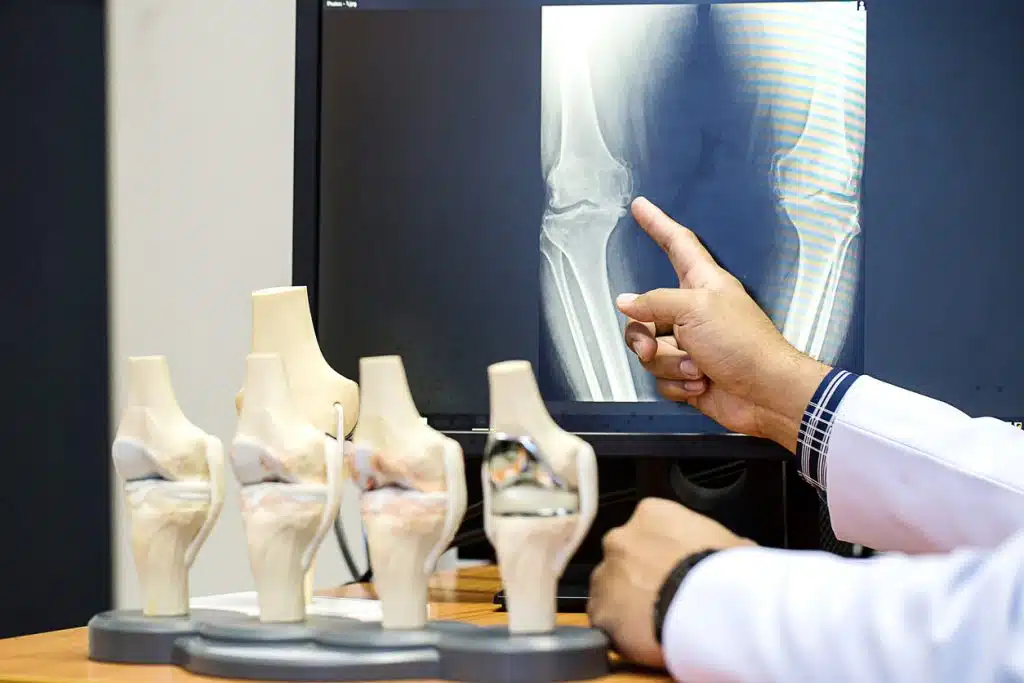What You Should Know About Orthopedic Second Opinions
By Dr. Aman Dua, Orthopedic Surgeon
When it comes to your health, especially in orthopedic care, making informed decisions is critical. Whether you're facing a major surgery, a complex diagnosis, or long-term treatment, a second opinion can often provide clarity, confidence, and the best possible outcome. As an orthopedic surgeon, I’ve seen firsthand how valuable a second opinion can be for patients, especially for complex or life-altering orthopedic decisions.
Why Consider a Second Opinion?
Orthopedic issues such as joint replacements, spinal surgeries, or complex fracture repairs can have long-term impacts on your mobility, quality of life, and overall health. These are not decisions to be taken lightly, and it’s natural to want the assurance that you're on the right path. Seeking a second opinion offers several benefits:
Confirming the Diagnosis
Orthopedic conditions are often complicated, involving bones, muscles, tendons, and ligaments. A second opinion can confirm the initial diagnosis, giving you peace of mind that the issue is accurately identified. Different specialists may interpret imaging or test results slightly differently, leading to alternative conclusions. Ensuring a precise diagnosis is key to proper treatment.
Exploring Alternative Treatment Options
There’s rarely a "one-size-fits-all" solution in orthopedics. While one surgeon might recommend surgery, another might suggest conservative treatments like physical therapy, medications, or injections. Getting a second opinion allows you to explore all options, including less invasive treatments that could delay or even prevent the need for surgery.
Understanding the Risks and Benefits
Surgery, especially in orthopedics, carries inherent risks, such as infections, blood clots, or complications with implants. A second opinion can offer a different perspective on these risks and help you weigh the benefits of surgery against the potential drawbacks. It’s important to know if the procedure is truly necessary or if other interventions may be equally effective.
Advances in Orthopedic Technology and Techniques
The field of orthopedics is constantly evolving, with new techniques and technologies being introduced regularly. For instance, minimally invasive surgeries, robotic-assisted procedures, and biologic therapies (like PRP injections) are revolutionizing patient care. By seeking a second opinion, you may discover that you are a candidate for a more advanced or less invasive option that wasn't initially considered.
Building Confidence in Your Treatment Decision
Making the decision to proceed with orthopedic surgery can be overwhelming. A second opinion not only confirms the right treatment plan but also builds your confidence in the medical team performing the procedure. You want to feel assured that you’ve explored all your options and that the surgeon you choose is experienced, skilled, and well-versed in the specific surgery you need.
When Should You Seek a Second Opinion?
While not every orthopedic issue requires a second opinion, there are certain scenarios where it's particularly important:
- Major Surgeries: Procedures like joint replacements, spinal surgeries, and reconstructive surgeries are complex and have long-term consequences. A second opinion can help ensure that surgery is truly necessary.
- Persistent Pain: If you've been receiving treatment for chronic pain or a musculoskeletal condition but aren’t seeing improvement, it may be time to seek another perspective.
- Unclear Diagnosis: If your diagnosis is uncertain or you’ve received conflicting opinions from different specialists, a second opinion can provide clarity.
- Life-Altering Conditions: When an orthopedic issue impacts your daily life significantly, such as loss of mobility or severe pain, it's wise to explore all treatment options through a second consultation.
- Elective Surgeries: If your surgeon has recommended elective surgery, like knee arthroscopy or carpal tunnel release, and you’re unsure about proceeding, a second opinion can give you more information to decide.
How to Approach a Second Opinion
Getting a second opinion doesn’t mean you distrust your current surgeon. In fact, most doctors encourage patients to seek additional input for complex cases. As an orthopedic surgeon, I value the collaborative nature of medicine, and I believe that every patient should feel fully informed before making major health decisions.
If you’re seeking a second opinion, here’s how to approach it:
- Be Open and Honest: Let your current doctor know that you’d like a second opinion. Most surgeons will understand and may even refer you to a colleague or specialist.
- Bring Your Medical Records: To make the process smooth, ensure that your second-opinion doctor has access to all relevant medical records, including imaging (X-rays, MRIs), previous diagnoses, and treatment plans.
- Ask Specific Questions: Come prepared with specific questions or concerns. Ask about alternative treatments, the risks of surgery, and long-term outcomes.
- Weigh the Options: After receiving the second opinion, take time to weigh your options. Consult with your family, and consider which path aligns best with your goals and comfort level.
Conclusion
Orthopedic surgery and treatments are deeply personal decisions, often with life-altering consequences. Seeking a second opinion can offer reassurance, alternative options, or even confirm your initial decision, giving you confidence in your chosen path. As a surgeon, my goal is always to provide the best care possible, and if a second opinion helps you make a more informed decision, it’s invaluable.

